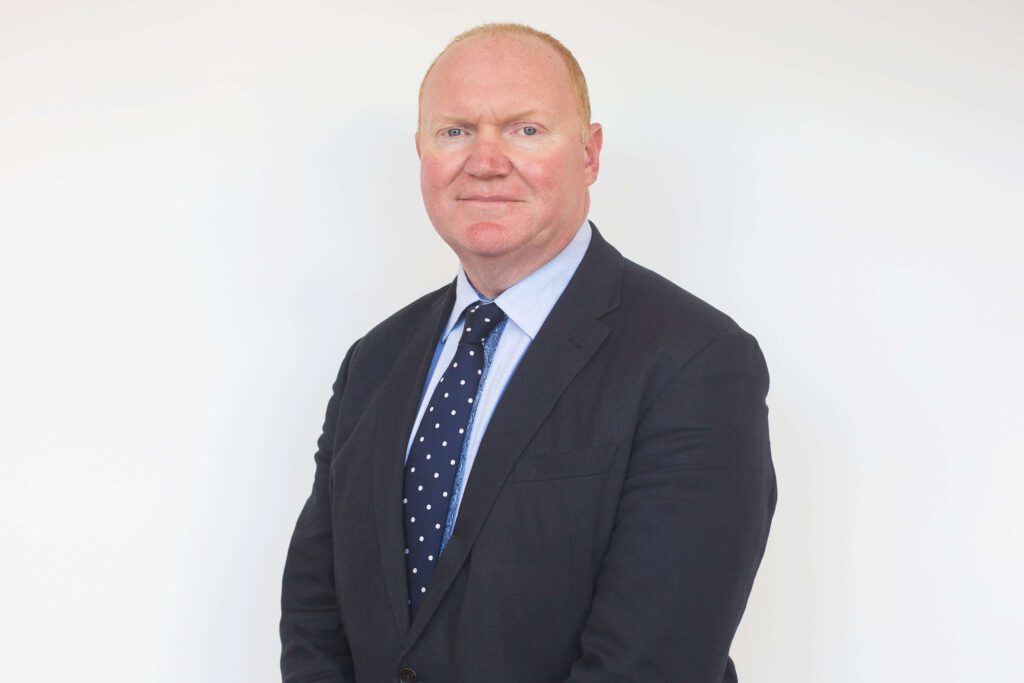From “Dyslexic write-off” to University Vice Chancellor

Dyslexia is one of the most common learning disabilities that affects people of all ages, with many people going undiagnosed their whole lives. There is still more to be done to identify and support young people and adults.
Ahead of Dyslexia Awareness Week (7th – 13th October), Vice Chancellor and CEO of Arden University, Carl Lygo discusses his own struggles of growing up with the learning disability. Carl is an experienced barrister turned academic, winning an award as a “Hot 100 lawyer”. He has been the chief executive of a multinational company and founder of BPP University. Carl is also recognised for his influential contribution to higher education, winning a Gold Award by the Association of Colleges.
Carl said: “I went to school at a time when dyslexia was not understood properly, I thought I was thick. I grew up in the South Yorkshire town of Doncaster during the 1960’s and 1970’s, when it was experiencing severe economic downturn. It meant there was little chance I would make it to university and this was before I knew I had a learning disability.”
“Coping with dyslexia means you have to work much harder and think more laterally about how you do things. I made up for my dyslexia by studying endlessly to demonstrate my ability at school.”
“I was told I wasn’t very bright and encouraged to either “go down the pit” to become a miner or become a “brickie” (a bricklayer) but despite this I worked two jobs while I studied for my A-Levels.”
“When your entire family has been held back by dyslexia, you don’t have the cultural role models to teach you about exams, writing essays and reading books. It held me back for a long time.”
“Because there wasn’t anyone in my immediate family who had been to university, I was in blissful ignorance that going into higher education was unusual for people like me.”
“Being an outsider trying to break into higher education and having dyslexia held me back, but at the same time the work ethic I had to develop to overcome dyslexia was the key to my success. Whereas other people seemed to just have the natural ability and connections to succeed, I relied on an unparalleled sense of determination and motivation.”
“After my first year of university and being rejected by every solicitor firm in Doncaster without even an interview, I doubled down and decided I wanted to be a Barrister instead. I once again turned my dyslexia into an advantage. It taught me you can achieve anything through hard work and persistence.”
“This all paid off when I eventually graduated First Class with Honours from the University of Central Lancashire and managed to get a pupillage (a barristers training scheme) in one of the very best sets of chambers for Barristers (the former Lord Chancellor’s set).”
“Following a varied career as a Barrister, lecturer and even establishing my own university, I came out of early retirement to support Arden University because I believe it offers an amazing opportunity for students with learning disabilities like dyslexia.”
Carl believes Arden University is a pioneering digital online hub that is at the forefront of learning, including supporting people with learning difficulties. Because content is available online, students have the flexibility that comes with Distance Learning. It gives students the ability to study at their own pace and can really make a huge difference to a student’s success – especially when balancing this with a learning difficulty like dyslexia.”
Despite all the initial setbacks, Carl is optimistic for future learners who have all the digital tools they require to help them achieve their personal goals.”
He added: “All this is possible thanks to the advent of the digital age. Higher education now has access to brilliant learning technologies and can really help students. Having emails and word documents read out to you; the ability to adjust font sizes and change font colours all help – there are just so many options. Universities really have made giant steps forward with learning support through initiatives such as learning contracts and making allowances in assessments. Having worked for universities around the world, I feel the UK is leading the way in student support”
“However, there is always more we can do to support people with learning difficulties. Support and diagnosis are currently very top heavy in education. Early diagnosis in schools and adapting learning approaches are key.”
“It is vital that you don’t let dyslexia hold you back. In fact, it makes you who you are as an individual. My 12-year-old self would never believe how far a dyslexic boy from Doncaster has come over the last 40 years!”
For more information on Dyslexia and where to get a diagnosis, please visit https://www.nhs.uk/conditions/dyslexia/











Responses